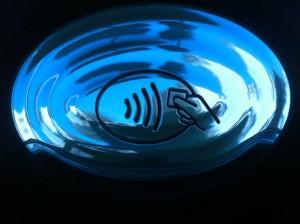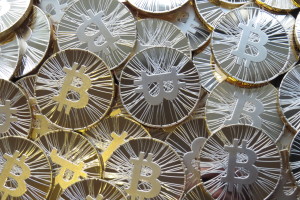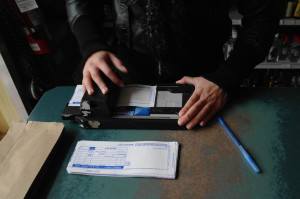March 3rd, 2014 by Elma Jane
A solution for mobile commerce will be needed eventually, whether you’re an ecommerce merchant or you run a brick-and-mortar shop.
There are mobile payment platforms for digital wallets, smartphone apps with card-reader attachments, and services that provide alternative billing options. Here is a list of mobile payment solutions.
Boku enables your customers to charge their purchases directly to their mobile bill using just their mobile number. No credit card information, bank accounts or registration required. The Boku payment option can be added to a website, mobile site, or app. Price: Contact Boku for pricing.
Intuit GoPayment is a mobile credit card processing app from Intuit. It accepts all credit cards and can record cash or check payments. Intuit GoPayment transactions sync with QuickBooks and Intuit point-of-sale products. Intuit GoPayment works with iOS and Android devices and provides a free reader. Price: $12.95 per month and 1.75 percent per swipe, or 2.75 percent per swipe and 3.75 per keyed transaction.
iPayment MobilePay is a mobile payment solution from Flagship Merchant Services and ROAMpay. The service accepts all major cards and can record cash transactions. To help build your customer database, the app completes customer address fields for published landlines. The app can handle taxes, tips, and can record transactions offline. You can use the service month-to-month. The app and the reader are free. Price: $7.95 per month; Each transaction costs $0.19 plus a swipe fee maximum of 1.58 percent, or a key fee between 1.36 and 2.56 percent.
ISIS mobile commerce platform enables brick-and-mortar stores to collect payments (via an NFC terminal) from the mobile devices of their customers. Provide your customers with a simplified checkout process through the contactless transmission of payments, offers, and loyalty integrated in one simple tap. Price: Isis does not charge for payment transactions in the Isis Mobile Wallet. Payment transaction fees will not be increased by working with Isis.
LevelUp is mobile payment system that uses QR codes on smartphones to process transactions. Use LevelUp with a scanner through your POS system, or use a standalone scanner with a mobile device. You can also enter the transaction through the LevelUp Merchant App, using your smartphone’s camera to read the customer’s QR Code and entering the amount to complete the transaction. LevelUp also provides tools to utilize customer data. Price: LevelUp charges a 2 percent per transaction fee. Scanner is $50; tablet is $200.
MCX is a mobile application in development by a group of large retail merchants. Details on the solution are vague, but MCX is intended to offer a customizable platform that will be available through virtually any smartphone. MCX’s owner-members include a list of merchants in the big-box, convenience, drug, fuel, grocery, quick- and full-service dining, specialty-retail, and travel categories. Price: To be determined.
mPowa is a mobile payment app to process credit and debit card transactions, and record cash and check sales. mPowa will soon launch its PowaPIN chip and PIN reader for the EMV (“Europay, MasterCard, and Visa”) card standard. (Developed in Europe, EMV utilizes a chip embedded in a credit card, rather than a magnetic strip.) The EMV standard is likely to gain footing to combat credit card fraud. mPowa is a good solution for merchants with a global presence. Price: 2.95 percent per transactions, or .25 percent or $0.40 per transaction when used as a current processor’s point-of-sale system.
PayAnywhere is a solution to accept payments from your smartphone or tablet with a reader. It features an automatic tax calculation based on your current location, discounts and tips, inventories with product images and data, and more. Bilingual for English and Spanish users. PayAnywhere provides a free credit card reader and free app, available for iOS and Android. Price: 2.69 percent per swipe, 3.49 percent plus $0.19 per keyed transaction.
PayPal Here gives you a variety of options for accepting payments, including credit cards, PayPal, check, record cash payments, or invoice. With PayPal Here, you can itemize sales totals, calculate tax, offer discounts, accept tips, and manage payment email notifications. Available for iOS and Android. The app and reader are free. Price: 2.75 percent per swipe and 3.5 percent plus $0.15 per manually-entered transaction.
Square is a simple approach to mobile credit card processing. Square provides a free point of sale app and a free credit card reader for iPhones and iPads. Square offers a selection of tools to track sales, taxes, top-purchasing customers, and more. Square’s pricing is on the higher end, but with no monthly fee Square may be a good fit if you have infrequent mobile transactions. Price: 2.75 percent per swipe and 3.5 percent plus $0.15 per manually-entered transaction.
Posted in Credit card Processing, Credit Card Reader Terminal, Credit Card Security, Digital Wallet Privacy, e-commerce & m-commerce, Electronic Check Services, Electronic Payments, EMV EuroPay MasterCard Visa, Financial Services, Internet Payment Gateway, Mail Order Telephone Order, Mobile Payments, Mobile Point of Sale, Near Field Communication, Point of Sale, Small Business Improvement, Smartphone, Visa MasterCard American Express Tagged with: accepts all credit cards, alternative billing, Android, bank accounts, brick and mortar, check payments, contactless transmission, credit and debit transactions, credit card reader, credit-card, database, Digital wallets, ecommerce merchant, EMV, free app, iOS, itemize, keyed transaction, mobile commerce, mobile credit card processing, mobile payment platforms, mobile site, mobile transactions, nfc terminal, point of sale, process transactions, qr codes, record transactions offline, smartphone apps card-reader attachments, transactions
January 21st, 2014 by Elma Jane
A “cryptocurrency” is a peer-to-peer, decentralized, digital currency. Cryptocurrencies offer the potential for merchants to one day break the stranglehold of credit card processing fees. Cryptocurrencies are a disruptive technology that should be actively followed and considered. After all, online commerce is itself a disruptive technology.
Bitcoin
Bitcoin’s high cryptographic security allows it to process transactions in a very efficient and inexpensive way. You can make and receive payments using the Bitcoin network with little or no fees, and without a merchant account. Payments are made from a wallet application, either on your computer or smartphone, by entering the recipient’s address, the payment amount, and pressing send. To make it easier to enter a recipient’s address, many wallets can obtain the address by scanning a QR code or touching two phones together with NFC technology. Market Cap: $10.6 billion (12.1 million coins).
Bitcoin is the first implementation of a cryptocurrency, which was first described in 1998 by Wei Dai and specified by Satoshi Nakamoto in 2009, establishing a decentralized form of money that uses cryptography to control its creation and transactions. New Bitcoins are generated by a competitive and decentralized process called “mining,” the process of spending computing power to process transactions, secure the network, and keep everyone in the system synchronized together. The number of new Bitcoins created each year is automatically halved over time until Bitcoin issuance halts completely with a total of 21 million Bitcoins in existence.
Feathercoin – is based on Litecoin’s Scrypt-based hashing algorithm for GPU mining, rather than requiring Bitcoin’s expensive ASIC mining hardware. Feathercoin uses advanced checkpointing to provide additional security through a form of centralization without having to redistribute the Feathercoin software. At mining completion, 336 million coins will be produced. Market Cap: $11 million (26.2 million coins).
Litecoin – is based on the Bitcoin protocol, but differs from Bitcoin in that it can be efficiently mined with consumer-grade hardware. Litecoin provides faster transaction confirmations and uses a mining proof-of-work algorithm to target the regular computers with GPUs — graphics processing unite — most people already have. Litecoin provides a mining algorithm that can run at the same time on the same hardware used to mine Bitcoins. The Litecoin network is scheduled to produce 84 million currency units. Market Cap: $731 million (23.9 million coins).
Megacoin – raises the most red flags among this list of cryptocurrencies. Launched just six months ago, fifty percent of the total coins have been mined. Upon mining completion, only 42 million coins will exist. Its branding might lead an investor to believe it is associated with billionaire Kim Dotcom’s Mega.co.nz, but there is no connection. If you are interested in monitoring the fate of the more speculative cryptocurrencies, this is one to watch. Market Cap: $15.3 million (21.2 million coins).
Namecoin – is based on the Bitcoin source code. A cryptocurrency, Namecoin also acts as a DNS, a decentralize domain name system to buy, register, configure, and sell domains. The first project using Namecoin is the .bit domain. Market Cap: $44.4 million (7.4 million coins).
Peercoin – is a cryptocurrency project forked from Bitcoin that strives to achieve energy efficiency and increased security. Like other cryptocurrencies, initial coins are mined through the more commonly used proof-of-work hashing process. However, unlike other coins, as the hashing difficulty increases over time, users continue to be rewarded with coins generated by the additional proof-of-stake algorithm. Unlike most cryptocurrencies, Peercoin does not have a fixed money supply. Market Cap: $90.1 million (20.9 million coins).
Primecoin – is the first cryptocurrency with non-hashcash proof-of-work. Primecoin’s proof-of-work is based on searching for prime number chains, providing potential scientific value in addition to minting and security for the network. Similar to Bitcoin, Primecoin enables instant payments to anyone, anywhere in the world. It also uses peer-to-peer technology to operate with no central authority. Primecoin is also the name of the open source software that enables the use of this currency. Market Cap: $13.8 million (3.5 million coins).
ProtoShares – are used to mine Distribute Autonomous Corporation (DAC) backed cyrptocurrencies while they are still in development by Invictus Innovations. DACs are essentially automated businesses that perform services. And so ProtoShares are stakes in future cryptocurrency platforms. Cryptocurrencies under development are BitShares for asset trading and DomainShares for domain services. Protoshares will achieve a maximum supply of approximately 2 million coins in 2 years. BitShares money supply will be about 20 million coins. Market Cap: $23.1 million (1.1 million coins).
Quark – is a cryptocurrency that focuses on enhanced security, using nine separate rounds of encryption and six different algorithms. Quark is mined by CPU only, with 247 million mined in the first six month and then an additional 1 million units mined every year. Quark coin will continue to release coins in perpetuity at an inflation rate of .5% per year. Market Cap: $47.4 million (246.3 million coins).
Worldcoin – seeks to become the cryptocurrency of choice for merchants and consumers for their everyday transactions. Transactions are fully confirmed in about 60 seconds. Due to frequent block generation (30 seconds), the network supports more transactions without a need to modify the software in the future. At mining completion, 265 million coins will be produced. Market Cap: $20.6 million (35.2 million coins).
Posted in e-commerce & m-commerce, Electronic Payments, Financial Services, Internet Payment Gateway, Mobile Payments, Near Field Communication Tagged with: asic mining, bitcoin, credit card processing, cryptocurrencies, cryptocurrency, cryptographic security, decentralized, gpu mining, hashing algorithm, make and receive payments, merchant account, nfc technology, online commerce, payment amount, peer-to-peer, process transactions, QR code, wallet application
Businesses looking to make an impact on their bottom line should take a look at the way they process electronic transactions. Today consumers view their transactions as an experience gravitating toward convenience. Long lines at the cash register can often turn away customers, sending them to competitors who might have more convenient ways to pay and therefore shorten time spent to complete the purchase. Impulse buyers are another reason to make sure that transactions go as smooth as possible increases the chance of future purchases. Read more of this article »
Posted in Electronic Payments Tagged with: account, application, electronic payments, electronic transactions, fees, merchant, process, process transactions, Processing, Rates


